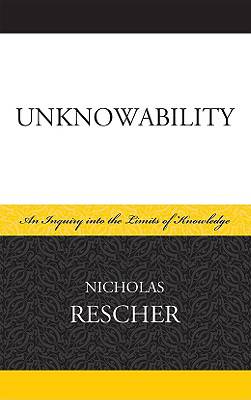
- Afhalen na 1 uur in een winkel met voorraad
- Gratis thuislevering in België vanaf € 30
- Ruim aanbod met 7 miljoen producten
- Afhalen na 1 uur in een winkel met voorraad
- Gratis thuislevering in België vanaf € 30
- Ruim aanbod met 7 miljoen producten
Zoeken
€ 178,45
+ 356 punten
Uitvoering
Omschrijving
The realities of mankind's cognitive situation are such that our knowledge of the world's ways is bound to be imperfect. None the less, the theory of unknowability--agnoseology as some have called it--is a rather underdeveloped branch of philosophy. In this philosophically rich and groundbreaking work, Nicholas Rescher aims to remedy this. As the heart of the discussion is an examination of what Rescher identifies as the four prime reasons for the impracticability of cognitive access to certain facts about the world: developmental inpredictability, verificational surdity, ontological detail, and predicative vagrancy. Rescher provides a detailed and illuminating account of the role of each of these factors in limiting human knowledge, giving us an overall picture of the practical and theoretical limits to our capacity to know our world.
Specificaties
Betrokkenen
- Auteur(s):
- Uitgeverij:
Inhoud
- Aantal bladzijden:
- 124
- Taal:
- Engels
Eigenschappen
- Productcode (EAN):
- 9780739136157
- Verschijningsdatum:
- 16/04/2009
- Uitvoering:
- Hardcover
- Formaat:
- Genaaid
- Afmetingen:
- 155 mm x 229 mm
- Gewicht:
- 317 g

Alleen bij Standaard Boekhandel
+ 356 punten op je klantenkaart van Standaard Boekhandel
Beoordelingen
We publiceren alleen reviews die voldoen aan de voorwaarden voor reviews. Bekijk onze voorwaarden voor reviews.











